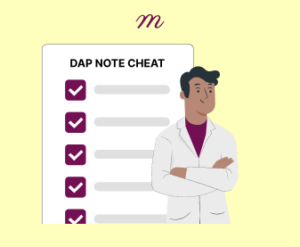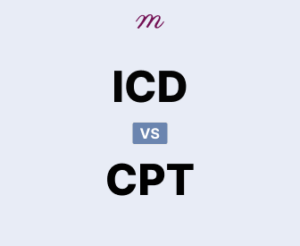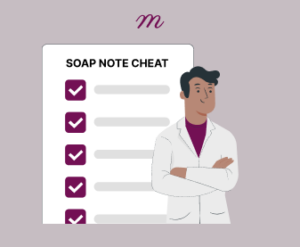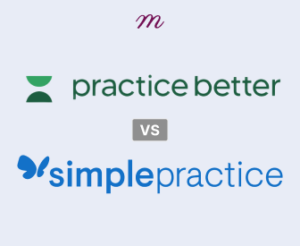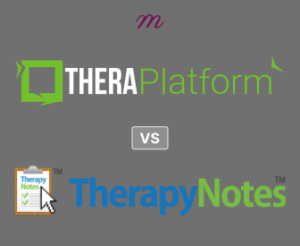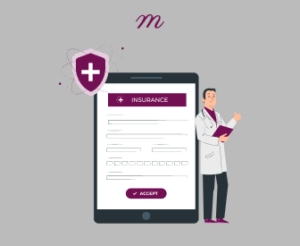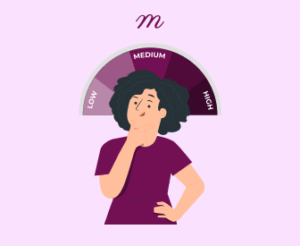Mentalyc Blog
-
Are you finding it difficult to process your bills and get paid as a mental health professional? Then, this ultimate guide to private practice billing services is for you. Documenting all services you render to clients no longer has to be a hassle. You can also track your payments with ease. Here is everything you […]
-
Exploring the Intersection of Mental Health Care and Non-Profit Organisations When a mental health practitioner decides to open a private practice, one of the first decisions they must make is whether it should be for profit or non-profit. Despite the common belief that private practices are always for-profit organisations, there may be scenarios in which […]
-
Starting a private practice involves handling several administrative tasks. This can seem daunting if you’re just starting your practice. You might feel overwhelmed especially when you're focused on client care. However, one of the most crucial decisions you'll make in your practice is deciding your business structure. You need to be able to efficiently manage […]
-
Any mental health practitioner would want to provide the best possible care to their clients however handling the administrative and organisational parts of the practice may be exhausting and time-consuming. Well, if you face a similar concern you are in the right place because we have got you covered. There are a plethora of apps […]
-
In mental health care, effective communication is important. A psychologist’s responsibility goes beyond understanding and helping the clients to also include maintaining precise and comprehensive records of their interactions. The value of adequate documentation in psychology cannot be emphasised enough. The session notes serve several important functions: Clinical tool: DAP notes serve as a therapy […]
-
Mental health private practice therapists play a pivotal role in offering personalized, one-on-one support to individuals striving to improve their mental well-being. But just how lucrative can this path be? Did you know that the highest-earning private practice therapists can make over $150,000 annually? For many mental health professionals, opening a private practice represents an […]
-
ICD VS CPT difference between cpt and icd-10 pcs icd vs cpt vs hcpcs difference between diagnosis code and procedure code Clear communication is very important in healthcare. Medical coding systems act as a universal language, enabling healthcare providers, insurance companies, and researchers to work together seamlessly. For mental health professionals, mastering these […]
-
In social work, documentation isn't just a tedious task—it's an important part of effective practice. Think of it as the backbone of quality client care, ensuring everything runs smoothly, stays accountable, and meets legal standards. For social workers managing multiple cases and navigating complex support systems, keeping detailed records is both challenging and essential. This […]
-
Feeling overwhelmed about setting your fees? Whether you're an experienced therapist or just starting, determining your pricing can be challenging and may require more than just business insight. This article explores everything you need to know about setting the correct fees for your therapy sessions. From navigating insurance complexities to mastering value-based pricing, we'll guide […]
-
Think about it this way – you just came out of a very intense therapy session and your mind is full of insights and observations. However, when you sit down to write about the session, writer’s block hits you. Does this sound familiar? Well, don’t fret my fellow mental health warriors! SOAP notes are here to rescue us today […]
-
Feeling overwhelmed by the sea of CPT codes? Get ready to explore one of the most crucial ones: CPT Code 96127. Whether you’re an experienced therapist or a newly minted counselor, understanding this code is essential for your practice. It’s all about those rapid emotional and behavioral assessments that can genuinely make a difference for […]
-
Starting your own practice is a significant and exciting milestone. However, it comes with its share of challenges, especially when choosing the right practice management software. With options like Practice Better and SimplePractice, deciding which will best meet your needs can be tough. But don’t worry, we’re here to help. In this article, we’ll dive […]
-
Do you ever feel like you’re playing 20 Questions with your clients? Well, buckle up because you are about to learn about open-ended questions in counseling. These are the kinds of questions that can open up a whole world of insights and emotions. Whether you’re a pro therapist or a fresh-faced student, mastering the art […]
-
Are you feeling overwhelmed by mountains of paperwork and struggling to keep your practice in order? You’re not alone. In today’s digital age, having the right Electronic Health Record (EHR) and practice management software is crucial for mental health professionals to run their practices efficiently and maintain their sanity. Let’s deeply dive into two popular […]
-
Ever dreamt of being your own boss as a licensed clinical social worker (LCSW)? If you’re unsure of how to start a private practice as an LCSW, then, this guide is for you. Having your independent private therapy practice as a social worker can be greatly rewarding. It offers you the freedom to focus on […]
-
Designing a Comfort Zone – Decor Tips for Therapists’ Office Our surroundings have a profound impact on us. The surroundings are constantly providing our brain stimulus and the brain is constantly processing and drawing interpretations about it. “Is it a safe space?” “Do I feel comfortable enough?” The decor, color of the walls, lighting, and […]
-
Managing your private therapy practice involves more than just client sessions; it also includes preparing for sessions, cleaning and organizing your notes, handling administrative tasks such as scheduling appointments, maintaining patient records, and managing billing and insurance. A therapist's caseload significantly impacts their ability to provide effective therapy, manage their business, and maintain a healthy work-life […]
-
As a mental health professional, deciding whether to work in a private practice or an agency is crucial. This decision impacts your income, lifestyle, support system, and daily routine. No one-size-fits-all answer exists, but let’s compare private practice and agency counseling. This guide looks at the distinct opportunities, challenges, and considerations associated with each path, […]
-
Are you a therapist considering taking the bold step of accepting insurance in your private practice? It can seem tricky especially if you’re just starting out. This big decision comes with its advantages and challenges. There is the possibility of expanding your reach to a broader range of people which is a greatly rewarding aspect of […]
-
Are you ready to take control of the growth of your therapy private practice in a competitive landscape? It's crucial to stand out. This comprehensive guide is tailored specifically for counselors, psychologists, psychiatrists, and social workers like you. It offers proven marketing strategies to enhance your professional outreach and client engagement, covering essential topics from […]
-
Are you considering starting your own private practice in California? Join thousands of mental health professionals who have taken the leap! It’s an exciting and rewarding journey but can also be overwhelming. This guide will walk you through everything you need to know – from obtaining licenses and financing your practice to marketing and legal […]
-
Clinical documentation… Ugh! Just hearing those words makes me want to crawl back into bed and pull the covers over my head. I often hear colleagues say, “I hate paperwork”. And honestly, who can blame them? The thought of sitting down to meticulously document every session can feel like a chore, especially after a long […]
-
We’ve all felt nervous meeting new people or putting ourselves out there socially. Making that first move to interact with others requires a degree of vulnerability that can stir up anxious feelings inside. This is normal human experience, at least for me! I recall how avoidance and distance were once my automatic reactions in relationships due to […]
-
Are you a Board Certified Behavior Analyst (BCBA) ready for a new career challenge? Starting your own private practice is not just about being your own boss; it’s a gateway to unlimited income, personal and professional growth, and a chance to impact your field significantly. Our comprehensive guide, designed specifically for BCBAs, covers everything from […]




